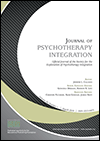Exercise Is Even More Effective Than Counselling or Medication for Depression
Exercise is an effective way to help with the treatment of a range of mental health disorders including depression and anxiety. In fact, exercise could be more effective than medication and counseling for depression.
Exercise Is Even More Effective Than Counselling or Medication for Depression Read More »




